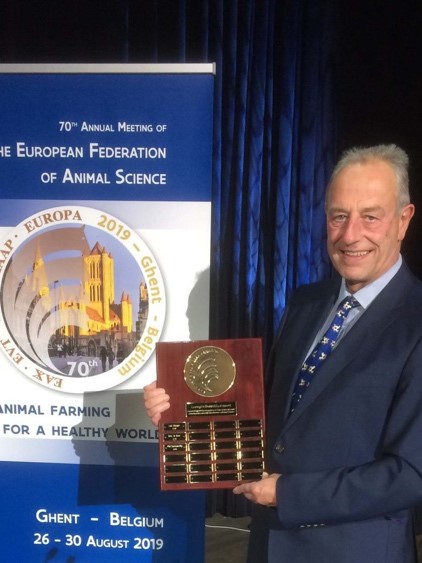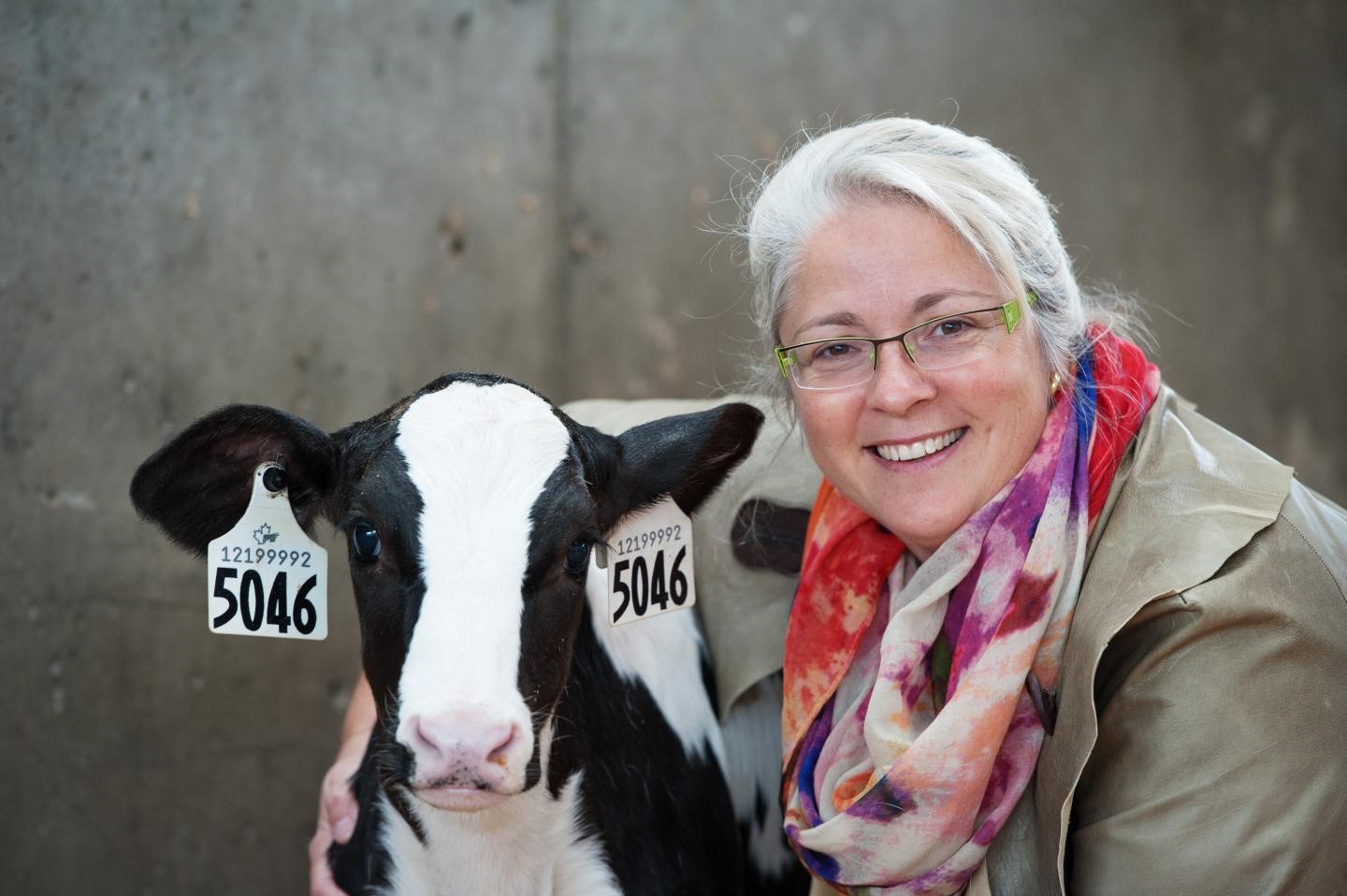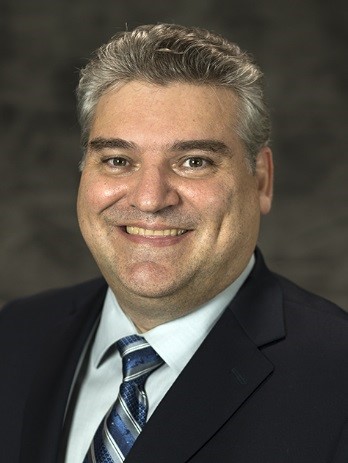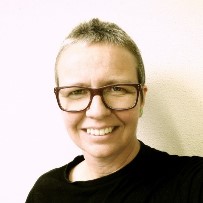특별 초청 강연 (동영상 강연)
| [Invited Lecture 1] Sustainable Intensification of Animal Production |
|

|
Prof.Phil Garnsworthy |
| Professor of Dairy Science and Head of Animal Sciences University of Nottingham, United Kingdom |
|
| [Invited Lecture 2] Rethinking intensive animal agriculture and meeting public expectations for our future farms |
|

|
Prof.Marina A.G. von Keyserlingk |
| NSERC Industrial Research Chair and Professor of Animal Welfare University of British Columbia, Canada |
|
| Dr. Marina (Nina) von Keyserlingk is a Natural Sciences and Engineering Research Council of Canada Industrial Research Chair in Animal Welfare. Her interdisciplinary approach has focused on identifying measures and ways of improving the lives of animals under our care. She is also among the first in her field to combine experimental and qualitative methods when addressing animal welfare issues. She has published over 250 peer reviewed publications and has received numerous awards, including the 2018 Hans Sigrist Foundation Prize, Bern, Switzerland, for her outstanding achievements as an international leader working in the field of sustainable food animal production. She was also awarded the American Dairy Science Association Extension Award in 2018, the Award for outstanding contributions to the field of ruminant well-being by the World Buiatrics Association in 2016 and the American Dairy Science Association Award for Excellence in Dairy Science in 2013. | |
| [Invited Lecture 3] Sustainable Animal Production to meet the Changes in Consumer Trends |
|

|
Prof.Luis O. Tedeschi |
| Professor of Animal Nutrition, Texas A&M AgriLife Research Faculty Fellow, and Chancellor EDGES Fellow Texas A&M University, USA |
|
| Dr. Luis Tedeschi’s research is focused on the integration of scientific knowledge of ruminant nutrition through mathematical modeling. These nutrition models can be valuable tools for solving contemporary needs related to environmental pollution and scarcity of resources through the development of efficient production systems. A solution to these problems can be achieved by accurately estimating animal requirements and nutrients derived from feeds in each unique production scenario, providing information that can be used in the decision-making process to optimize feeding systems, production efficiency, and profitability of complex animal production systems, including accounting for the interrelationships between cattle production and the environment. | |
| [Invited Lecture 4] X chromosome inactivation and dosage compensation in the bovine |
|

|
Prof.Xiuchun (Cindy) Tian |
| Professor of Biotechnology University of Connecticut |
|
| Dr. Xiuchun (Cindy) Tian, professor of biotechnology at University of Connecticut, obtained her MS/PhD from Cornell University in reproductive endocrinology and was a recipient of National Research Service Award from NIH as a post-doc. Dr. Tian research ranges from oocyte maturation, embryo development, genetic engineering, somatic cell nuclear transfer to embryonic stem cells. Her lab employs genome-editing, and multi-omics approach to study functional genomics, proteomics and epigenetics of pre-implantation embryos, nuclear reprogramming, genomic imprinting and X chromosome inactivation. Dr. Tian has published more than 110 primary research articles and 34 invited reviews in impactful journals such as Nature series, PNAS, Stem Cells as well as in specialty journals. She has been funded by the NIH/USDA for millions for research. She currently serves on the editorial boards of four international journals including BMC Developmental Biology (Section Editor). She has been given more than 80 invited talks worldwide. | |
| [Invited Lecture 5] Sustainable production systems: the case for localization of feed production |
|

|
Dr.Wendy Mercedes Rauw |
| Research Scientist of Animal Breeding National Institute for Agricultural and Food Research and Technology (INIA), Spain |
|
| Born in the Netherlands, Wendy pursued an MSc in Animal Science at Wageningen University & Research in the Department of Animal Breeding, and finished in 1996 with a topic on “biological aspects of animal breeding”. She followed up with a PhD at the Norwegian University of Life Sciences in Ås in the same field, with a thesis on the consequences of selection for high production efficiency on resource allocation patterns in a Norwegian mouse model. In 2000, she moved to Lleida in Spain, to work at IRTA, the Institute of Agrifood Research and Technology. She worked for four years as a research scientist on growth, feed intake, feed efficiency, meat quality and genetics in pigs. In 2004 she moved to Reno, Nevada in the US, where she started as an Assistant Professor at the Department of Animal Biotechnology at the University of Nevada, Reno. Research in the six years following involved adaptability of sheep and Lahontan Cutthroat trout to Nevada’s cold-desert climate, and genetics in cattle and pigs. In 2010 she decided to move back to Spain, and works since then at the Department of Animal Breeding and Genetics at INIA, National Institute for Agricultural and Food Research and Technology. After several years working on feed efficiency in Rainbow trout and Turbot her work currently focusses again on pig production, specifically on robustness, feed efficiency, animal welfare, and meat quality. Current and future projects are directly related to sustainability of production systems in the light of climate change and local feed resources. She is currently the coordinator of a European Research Area Network involving researchers from Spain, France, the UK, Norway, Sweden, the US and Australia on “Sustainability of pig production through improved feed efficiency”, which investigates feed efficiency in pigs in relation to climate change and local feeds that can substitute imported soybean meal. | |

